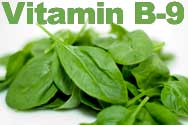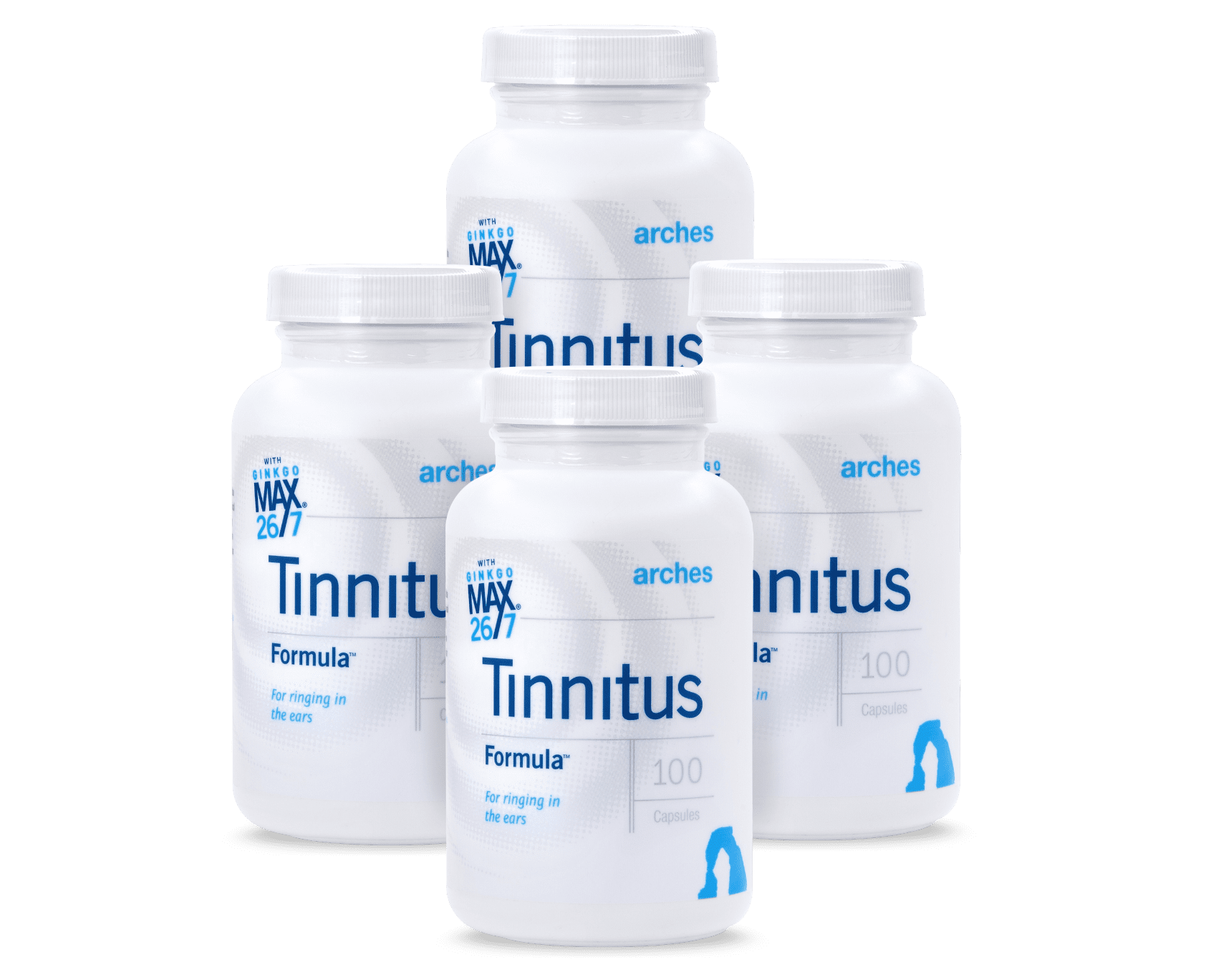By Barry Keate
Barry Keate, has lived with tinnitus over 40 years and has published 150+ research articles on numerous aspects of tinnitus. He is an expert on the condition and a well-known advocate for those with tinnitus.
There is mounting evidence that an essential but often overlooked vitamin plays a crucial role in preventing hearing loss in an aging population. In fact, having low levels of this vitamin has been linked to a form of hearing loss often accompanied with tinnitus.
 Folic acid, and the naturally occurring folate (also known as vitamin B-9), is primarily found in green, leafy vegetables such as spinach, asparagus, and turnip greens, Folic acid is essential to numerous bodily functions including inner-ear health, the metabolism of homocysteine, synthesis and repair of DNA, and preventing neural tube defects in developing embryos.
Folic acid, and the naturally occurring folate (also known as vitamin B-9), is primarily found in green, leafy vegetables such as spinach, asparagus, and turnip greens, Folic acid is essential to numerous bodily functions including inner-ear health, the metabolism of homocysteine, synthesis and repair of DNA, and preventing neural tube defects in developing embryos.
Folic Acid, Homocysteine, and Hearing Loss
In a previous Quiet Times article, we discussed homocysteine and hearing loss. Homocysteine is an amino acid formed from the metabolism of methionine, which is found in high concentrations in meat and dairy products. Since the western diet is high in meat and dairy products, we typically have high homocysteine levels.
Homocysteine can be metabolized by vitamins B-6, B-12 and folic acid. However, if there are not enough of these vitamins in the body to metabolize it, homocysteine can become a dangerous marker for cardiovascular disease, hearing loss, Alzheimer’s disease and many cancers.
New findings about homocysteine are leading many cardiologists to reconsider the view that atherosclerosis (hardening of the arteries) is primarily caused by high cholesterol levels. It seems, instead, that high homocysteine levels damage the lining of the arteries and cause atherosclerosis. Cholesterol laden plaques build up after the damage has been done and are a symptom of heart disease, not a cause of it.
The previous article also discussed the increasing cases of sudden sensorineural hearing loss (SSHL) in recent years. There are now 20 people in every 100,000 who are affected by sudden hearing loss every year. High homocysteine and low folate levels have a direct impact on this condition.
“World’s Healthiest Food”
In 1931, folate was identified as the nutrient needed to prevent anemia during pregnancy. It was first isolated and extracted from spinach leaves in 1941. It was later obtained in pure crystalline form in 1945.
In 1960, experts first linked folate deficiency to neural tube defects in embryos. US scientists realized that despite folate being available in foods and supplements, most people were deficient. The US implemented the folate fortification program in the 1990s. Under this program, folic acid is added to the nation’s cereal grain supply. Many other countries emulated this program and fortified products make up a significant source of the population’s folic acid intake.
Nonetheless, due to seriously deficient dietary habits in the West, most people are still folic acid deficient and should take a supplement.
Nicholas Kristof, a Pulitzer Prize-winning reporter and columnist for the New York Times, named folic acid the “World’s Healthiest Food.”(1) He did this because the absence of folic acid and a handful of other micronutrients cause severe deformities and diseases that are otherwise preventable. According to the article, adding folic acid and micronutrients to the food supply of developing countries would make a greater impact on world health than any other single action.
Folic acid supplementation should always be accompanied by vitamin B-12 supplementation to prevent folic acid from masking a vitamin B-12 deficiency. Also, vitamin B-12 and folic acid, along with vitamin B-6, are necessary to metabolize excess homocysteine.
Hearing Loss and Folate Levels
Several recent studies have linked low folic acid levels with increased hearing loss. One study examining the causes of sudden sensorineural hearing loss (SSHL) established that “Folate levels were found to be significantly lower in SSHL patients than controls” (those without hearing loss). And “…a significant relationship was found between low folate levels and high homocysteine levels in all patients.”(2) Approximately 70-85% of individuals with SSHL also found it was accompanied with tinnitus.
A study conducted in the Netherlands, a country without a folate fortification program, showed that folic acid supplementation slows age-related hearing loss.(3) 728 older men and women were given oral folic acid at 800 mcg per day or placebo. The conclusion stated, “Folic acid supplementation slowed the decline in hearing of the speech frequencies associated with aging…”
Another study aimed at elderly women was designed to test whether age-related hearing loss may be associated with poor vitamin B-12 and folate status.(4) The study found “Pure-tone averages were inversely correlated with serum vitamin B-12 and red cell folate…women with impaired hearing had 48% lower serum vitamin B-12 and 43% lower red cell folate than women with normal hearing.
Finally, a study presented at the 2009 American Academy of Otolaryngology Annual Meeting in San Diego, shows that higher folate levels decrease the risk of hearing loss in men over the age of 60 by 20%.(5)
So make sure to take folic acid along with vitamin B-12. Arches Tinnitus B-12 Formula contains 1,000 mcg of vitamin B-12 and 400 mcg of folic acid. Combine this with Arches Tinnitus Stress Formula and you will receive the vitamin B-6 necessary to metabolize homocysteine and an additional 400 mcg of folic acid. These supplements reduce cardiac risk factors and prevent hearing loss as we age.
References
- 1 – Kristof N, World’s Healthiest Foods, New York Times, Jan. 2, 2010. http://nytimes.com/2010/01/03/opinion/03kristof.html.
- 2 – Cadoni G, Agostino S, Scipione S, Galli J. Low serum folate levels: a risk factor for sudden sensorineural hearing loss? Acta Oto-laryngologica 2004, Vol. 124, No. 5, PP 608-611.
- 3 – Durga J, et al. Effects of Folic Acid Supplementation on Hearing in Older Adults: A Randomized, Controlled Trial; http://annals.org/content/146/1/1.abstract.
- 4 -Houston DK, Johnson MA, et al. Age-related hearing loss, vitamin B-12, and folate in elderly women. Am. J. Clinical Nutrition, Vol. 69, No. 3,564-571, March 1999.
- 5 – Shargorodsky J, Curhan G, et al. A prospective study of vitamin intake and the risk of hearing loss in men. Otolaryngology-Head and Neck Surgery, Vol 142, No 2, Feb 2010, 231-236.
Get Free Shipping!
Order now and get free shipping on either the Tinnitus Starter Kit or Combo Pack. Try the doctor recommended products with clinically proven ingredients for tinnitus. No coupon code required.

